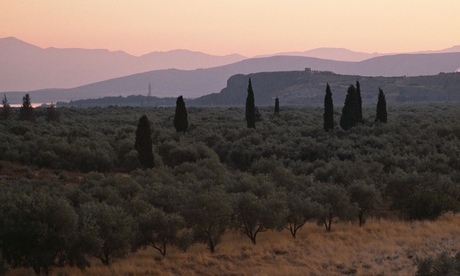Spring Pollen
Helge Lien Trio

Badgers and Other Beings
Review: Tom Mooney
The Helge Lien Trio, with Badgers and Other Beings, as a unit circumnavigate the piano of Helge Lien with an even tempo, sustaining a mood throughout the ten tracks, each morphing seamlessly into the other.
Mor and Joe consolidate the laid back tempo of the recording, with the latter embellished by a terrific solo by Frode Berg on bass; from the beginning you know you are in the company of a superb trio, with the subtle percussion of Per Oddvar Johansen segueing the bass and the piano.
Around for 14 years, the Helge Lien Trio had a change in personnel in 2013 when Knut Aalefjaer sought new pastures, and was replaced by Johansen: Badgers and Other Beings is the first recording of the new trio which a loyal fan base in their native Norway, and Japan and Germany.
Johansen had to fill big shoes, as Aalefjaer was a stable mooring for the trio, with steady beats and endless innovation, contributing handsomely to the Helge Lien Trio sound, not surprisingly defined by Lien’s instinctive composure. The pianist, and this comes across evidently on Early Bird and Hoggormen, has carved his own distinguishable niche in chamber jazz, with what he refers to as ‘harmonically complex’ tone colours.
Previous recordings, specifically Hello Troll and Kattenslager (Lien solo) bear testimony to his range, again all released by Ozella Music, whose recordings are based on a single premise: musicians are encouraged to express their musical idiosyncrasies.
So far, so promising.
On this recording, one of the shortest tracks, Knut, is a beautiful demonstration of Helge Lien Trio’s tone colours: Berg and Johansen keep their fingers on the pulse, allowing Lien to make something extraordinary out of the ordinary, whilst anchoring his flight.
With classic-impressionistic patterns and rhythmical-melodic jazz, their resourcefulness is fathomless, and Badger’s Lullaby is a good example of the influence of Bill Evans’s lyrical power and the melancholy of Esbjorn Svensson on Lien.
If you have seven minutes to spare, try The New Black, a change in mood from what has gone before, but revealing of Lien at his most cinematic, the striving for the epic, but more Brad Mehldau than Evans. Helge Lien doing Radiohead’s Exit Music (for a Film), now there’s a thought.
……………………………….
The Land of Gold by
Sebastian Barker
For all our dexterity with the language, in Ireland we just don’t produce poets with the voice of Sebastian Barker, whose death coincided with the publication of this outstanding volume, a hymn to life, to death, to Greece and, above all, to love.
The key to the distillation of this immense work, with frequent revisiting, if not the metre, then the themes, is Barker’s illustrious predecessors, two poets who straddle both the first and second Romantic movements, Byron and Blake; rarely throughout history appearing in the same sentence – having so little in common.
The magic in Barker’s poetry, which often mists into and out of prose, has roots in both – though not exclusively – with the visionary Blake complimenting the empirical Byron: if you concocted a child that was half-Byron and half-Blake, the result would be either a prosaist like Patrick Leigh Fermor or a poet like Barker.
There are, upon a first reading, immensely rich pickings in The Land of Gold by Barker, who at least lived almost twice as long as Byron, and with whom he shared a fascination with Greece – modern and old – and a capacity to look upon love anew.
The Land of Gold is divided into four sections: ecstasy and impending loss; poems through the prism of southern France; despair and existence and, finally and gloriously, redemption in Greece. Barker is incapable of writing a boring line because life never seems to be less than infectious. He is a master of all styles and, apropos of my opening line, he can summon the ghosts of Blake and Rimbaud to add the archaic to his palette, with a nod to the architecture behind Ginsberg’s Howl, constructing gloriously ripe versets which, in the hands of anyone but a master, would fade after an initial flowering.
‘A leaning monk looks over a porphyry front, and there is a body floating.
Propped on beds of amaranth and moly, the Lotos Eaters sing the song of melancholy.
Clouds die in the blueness. The curious vine climbs the yellow trellis to watch.’
(from The Tablets of the Bread)
The lines have the zeal and the drive of a modern O Wild West Wind: Barker is a poet not content to be obsessed with nature, but charged with a joy to revisit and re-invent. And yet, for all of the colour and the lightness and the giddy rhyming, The Land of Gold is a paen to melancholy. The poet, who died from lung cancer, never shied from contemplating mortality (‘the waves of the sea hurry in one direction’) but, fortunately for us, he brought to the page, as a noted Hellenophile, his love affair with life, which never, in these pages, wavers.
‘Here is the garden of the poem,
The place where love and language meet,
What was language of us and them
Has become the contemplative seat.’ (from The Garden of the Poem)
